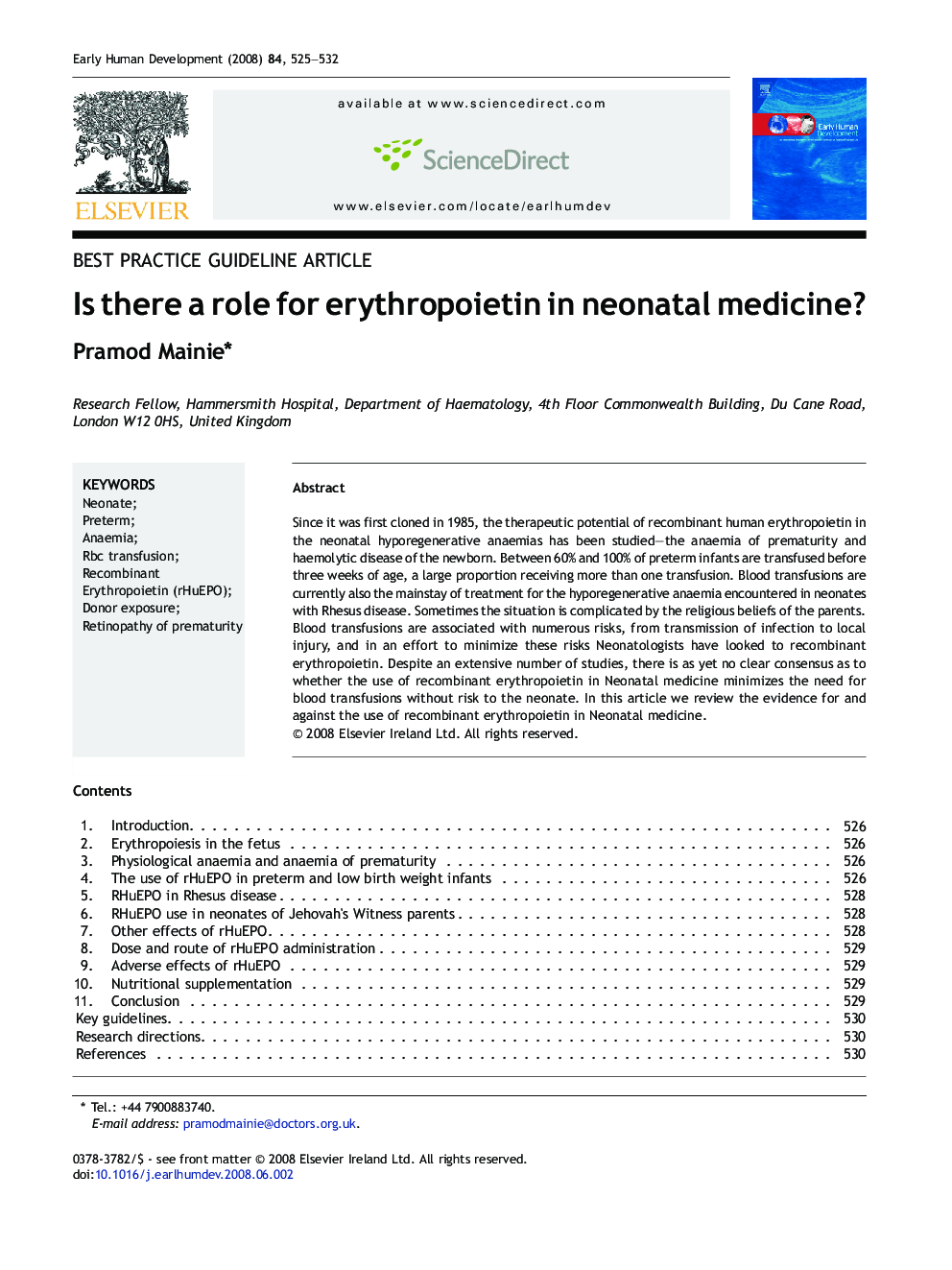| Article ID | Journal | Published Year | Pages | File Type |
|---|---|---|---|---|
| 3918191 | Early Human Development | 2008 | 8 Pages |
Since it was first cloned in 1985, the therapeutic potential of recombinant human erythropoietin in the neonatal hyporegenerative anaemias has been studied—the anaemia of prematurity and haemolytic disease of the newborn. Between 60% and 100% of preterm infants are transfused before three weeks of age, a large proportion receiving more than one transfusion. Blood transfusions are currently also the mainstay of treatment for the hyporegenerative anaemia encountered in neonates with Rhesus disease. Sometimes the situation is complicated by the religious beliefs of the parents.Blood transfusions are associated with numerous risks, from transmission of infection to local injury, and in an effort to minimize these risks Neonatologists have looked to recombinant erythropoietin. Despite an extensive number of studies, there is as yet no clear consensus as to whether the use of recombinant erythropoietin in Neonatal medicine minimizes the need for blood transfusions without risk to the neonate. In this article we review the evidence for and against the use of recombinant erythropoietin in Neonatal medicine.
